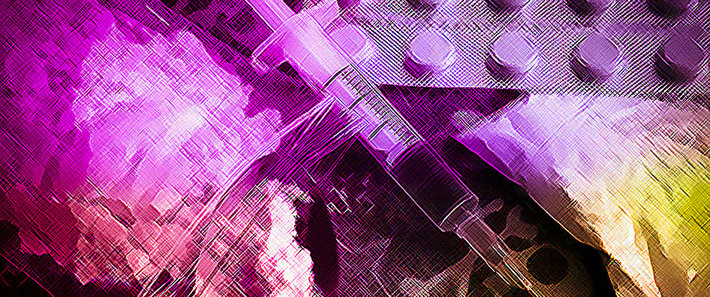
I’ve been listening to a lot of self-described Libertarians
explain their position on drug legalization. I don't mean marijuana. I mean all drugs. They frame it as a ‘liberty’
issue (obviously). To paraphrase, governments
shouldn’t be allowed to set limits on personal freedom. Drugs constitute
personal choice and are therefore off limits for enforcement. Cartels and gangs
are powerful because of the money they make from illegal sales. This keeps them
strong and violent. Making all drugs legal would remove their power and keep
petty drug users out of jail.
I don't pretend all pro-legalization types are drug users
themselves, but it’s disheartening when a major social crisis destroying
families and communities is said to be an issue of liberty. I’ll try to be fair because a lot of the
writers I like (Kevin Williamson, Megan McArdle) support drug legalization. But
nothing says insane like allowing someone to burn their house down and standing
back to watch because “It isn’t my mess”.
Legalization would increase the number of addicted and add a
monumental burden to social services, not to mention ruin a generation of kids.
Keeping laws in place ensures a lot of people will never try them or at least
not use as often. Removing the punishment removes the stigma.
Almost everyone agrees the ‘war on drugs’ feels like a loss.
Not because law enforcement hasn’t had success. Drug busts and high profile
arrests do happen on occasion but the sheer volume of abuse and violence tells
a story of loss. The drug war will always be difficult because of the high
demand for drugs. High demand means suppliers (local and foreign) rake in cash. The money creates incentive to produce more. More production
means increasing security and enforcement to protect the product. The violence
from street gangs and large cartels leads to turf wars, reckless killing and
paying off officials. If you want a good picture of what happens when a drug
economy takes hold, check out Mexico.
Libertarians will say “Mexico is a violent hell-hole BECAUSE
the substances are illegal; making them legal would eliminate the violence”.
But making drugs legal will only cut down on some of the crime. The violence is
tied almost solely to black markets, it doesn’t matter what product or service
is offered. Members of street gangs and cartels won’t suddenly apply to law
school because drugs are legalized, they’ll move on to the next thing. They’re
power comes from operating in an illegal environment. Mostly that means vices
like prostitution, gambling, and narcotics.
Gambling is legal in a lot of states as long as you go to a
casino. Yet it isn’t hard to find illegal games or unsanctioned betting. If
drugs were legal they would likely operate in a similar way. They could be sold
through licensed federal (or state) facilities where the quality gets approved
by federal officials. But what would stop illegal sellers and cartels from
undercutting official sales with unofficial lower quality stuff? What makes
proponents of legalization think the black market would dry up? It goes against
every historical understanding of market forces. Remember Eric Gardner who was
choked on a New York street by police trying to arrest him? He was selling
cigarettes (a legal product) without a license, a common practice when prices
are too high.
Another justification for legalizing is in cutting down the
number of prisoners in overcrowded prisons. I’m sympathetic to this argument, but
large populations of prisoners should not be a reason to overturn sound policies.
Tweak some things on the margins, like offering more work release and lower
sentencing. My first thought when hearing we have the largest prison population
in the world is, “We have a big problem with drugs”. Libertarians hear that and
think, “We have a big problem with laws”.
If every action has an equal and opposite reaction, than the
reaction to legal drugs would be runaway social costs. We already have a heavy
social cost with illegal drugs and only a part of that is because of violence.
A lot of it is just ordinary drug addiction, the kind that states spend
millions on every year through rehab programs, counseling and family services.
Families with addicts suffer immense pain and lose years fixing damaged health
and broken lives, wrecked relationships. Pro-drug enthusiasts want to add an
extra layer of destruction to the already bleak national picture. Legalization makes
it more likely that others will try it and become addicted.
Legalization is the lie of ‘choice’ gone too far. At some
point your ‘freedom’ interferes with others and the mess you leave behind is
what others clean up. I think at the core of legalization theory is something
selfish and cruel that makes proponents tout liberty while encouraging slavery.
Liberty is a wonderful thing and restrictions on personal choice should be
small and measured. But drug addiction strains social welfare and destroys
lives, not only for the addict but also those in his/her circle. Removing the
law against it opens up a real chance that a generation of Americans (kids especially)
will be lost to reckless social engineering.
Libertarians tend to see the individual as the highest moral
authority in a society. But individuals make choices that affect others in the
process of discovering their individuality. Laws against keeping a Bengal Tiger
in your apartment aren’t because the predator might kill you. They exist to
keep the people near you unharmed. Personal choice ceases to be ‘choice’ when
your obsession gets out of control.
In other words, your
choice takes away the liberty of others. Liberty goes both ways after all.
I Peter 2:16 (MEV) "As free people, do not use your liberty as a covering for evil, but live as servants of God".
No comments:
Post a Comment